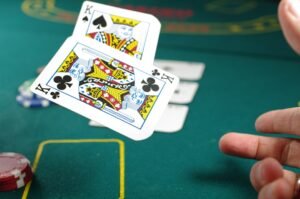Comprehensive Guide of Magic Tricks
Overview
Magic tricks are a captivating and entertaining hobby that involves performing illusions and sleight of hand to create the appearance of supernatural feats. This hobby allows individuals to engage their creativity, develop performance skills, and entertain audiences of all ages. Magic can take many forms, including card tricks, coin tricks, mentalism, and stage illusions, each requiring different techniques and levels of skill. Practicing magic not only enhances dexterity and coordination but also fosters confidence and public speaking abilities. Many magicians enjoy the challenge of mastering new tricks and the thrill of performing for friends, family, or larger audiences, making magic a dynamic and rewarding pastime.
History
The history of magic can be traced back to ancient civilizations, where magicians performed tricks and illusions in various cultural contexts. The earliest recorded magician is believed to be Dedi, an Egyptian magician who lived around 2700 BCE and is mentioned in historical texts. Throughout the centuries, magic evolved, with notable figures such as the famous illusionist Harry Houdini in the early 20th century, who popularized escape acts and stage performances. The development of modern magic has been influenced by advancements in technology and the rise of television, allowing magicians like David Copperfield and Penn & Teller to reach wider audiences. Today, magic continues to evolve, with new techniques and styles emerging, keeping the art form fresh and exciting.
Popularity and Demographics
Magic tricks have gained immense popularity worldwide, appealing to a diverse range of individuals, from children to adults. According to various surveys, a significant percentage of people express interest in learning magic, with many joining local magic clubs or attending workshops. The hobby is particularly popular among young people, as it offers a fun and engaging way to develop social skills and creativity. Additionally, the rise of online platforms, such as YouTube and TikTok, has made it easier for aspiring magicians to learn and share their tricks, fostering a vibrant community of magic enthusiasts. Magic conventions and competitions also contribute to the hobby’s popularity, providing opportunities for magicians to showcase their talents and connect with others who share their passion.
Sponsored Hobbyists and Vendors
Become a Sponsor!
Affiliate Disclaimer: Throughout some sections below, Hobby Spotlight may suggest some tools, equipment or material using affiliate links. By purchasing any of those items, Hobby Spotlight may earn a small commission. This helps fund our website, content and services without directly charging our users.
Getting Started
Magic Items:
Beginner
- Magic Kit: A beginner’s magic kit with basic tricks and props.
- Deck of Cards: Standard playing cards for card tricks.
- Silk Scarves: Colorful silk scarves for classic magic tricks.
- Magic Wand: A simple magic wand for performing tricks.
- Instructional Magic Book: A book with step-by-step instructions for beginner magic tricks.
Intermediate
- Professional Magic Kit: An advanced magic kit with a variety of tricks and props.
- Gimmicked Cards: Specially designed cards for advanced card tricks.
- Magic Props Set: A set of props for performing various magic illusions.
- Close-Up Magic Table: A portable table for performing close-up magic.
- Magic Instructional DVD: A DVD with advanced techniques and performances by professional magicians.
Basic Requirements and Initial Setup:
- Magic Kit: A beginner’s magic kit often includes essential props like cards, coins, ropes, and instructional materials to help you learn basic tricks.
- Practice Space: A quiet, well-lit area where you can practice your tricks without distractions is crucial for mastering your skills.
- Performance Outfit: While not mandatory, having a distinctive outfit can enhance your performance and create a memorable impression on your audience.
Fundamental Skills to Learn:
- sleight of Hand: The art of manipulating objects discreetly to create illusions, requiring dexterity and practice.
- Presentation Skills: Engaging your audience with storytelling and charisma is essential for a successful performance.
- Patience and Practice: Mastering magic tricks takes time and repetition, so patience is key to improvement.
- Audience Management: Learning how to read and engage your audience can enhance the overall experience.
- Improvisation: Being able to adapt and think on your feet during performances can help handle unexpected situations.
Sub-Hobby/Common Activities:
- Card Magic: Tricks involving playing cards, including shuffling, cutting, and revealing cards in surprising ways.
- Coin Magic: Illusions that use coins, such as vanishing coins, coin switches, and transformations.
- Stage Magic: Larger performances that may involve props, illusions, and elaborate setups to entertain a larger audience.
- Close-Up Magic: Intimate performances that occur close to the audience, often using everyday objects for tricks.
- Mentalism: A sub-genre of magic that focuses on mind-reading and psychological illusions, creating the appearance of extraordinary mental abilities.
Terminology:
- Sleight of Hand: A technique used by magicians to manipulate objects secretly and create illusions.
- Illusion: A trick that deceives the audience’s perception, often involving larger props or setups.
- Gimmick: A specially designed prop or device that aids in performing a magic trick.
- Reveal: The moment in a trick when the magician shows the outcome or the secret behind the illusion.
- Misdirection: A technique used to divert the audience’s attention away from the method of the trick.
- Palming: The act of secretly holding an object in the hand to conceal it from the audience.
- Forcing: A technique where the magician ensures the audience member selects a predetermined card or object.
- Setup: The arrangement of props and materials before performing a trick.
- Practice: The repeated execution of tricks to improve skill and confidence.
- Performance: The act of presenting magic tricks to an audience, which can vary in style and format.
Advanced Topics and Specializations
Advanced Magic Tools and Equipment:
- Professional Magic Set: A comprehensive magic kit that includes high-quality props and instructional materials for advanced tricks.
- Invisible Thread Reel: A specialized tool for performing tricks that require the use of invisible thread, allowing for seemingly impossible effects.
- Gimmicked Cards: Custom-designed playing cards that facilitate advanced card tricks and illusions.
- Magic Wand with Built-in Electronics: A professional wand equipped with electronic features for performing advanced magic effects.
- Professional Stage Illusion Props: Large-scale props designed for stage performances, allowing magicians to perform grand illusions.
Advanced Projects and Achievements:
- Stage Performance Magic: Creating and executing a full magic show that includes illusions, sleight of hand, and audience participation, showcasing a range of skills and creativity.
- Cardistry Mastery: Developing intricate card flourishes and routines that combine artistry and dexterity, often performed in competitions or exhibitions.
- Custom Magic Props: Designing and building unique props for specific tricks, enhancing the overall performance and adding a personal touch to routines.
Advanced Techniques and Methods:
- Sleight of Hand: Mastering techniques such as palming, misdirection, and false shuffles to create the illusion of magic through skillful manipulation of objects.
- Illusion Design: Understanding the principles of stagecraft and engineering to create large-scale illusions that captivate audiences and defy logic.
- Psychological Techniques: Utilizing principles of psychology and suggestion to influence audience perception and enhance the magical experience.
Specializations and Niche Areas:
- Close-Up Magic: Focusing on intimate performances that occur in small settings, often involving cards, coins, and everyday objects.
- Street Magic: Performing spontaneous magic in public spaces, engaging passersby and creating a sense of wonder in everyday environments.
- Mentalism: Specializing in mind-reading and psychological illusions, creating the appearance of extraordinary mental abilities.
- Children’s Magic: Crafting engaging and entertaining performances tailored specifically for young audiences, often incorporating humor and storytelling.
- Digital Magic: Exploring the intersection of technology and magic, using apps and digital tools to create innovative performances.
Future Trends and Innovations:
- Increased integration of technology in performances, such as augmented reality and interactive elements.
- Growing popularity of online magic tutorials and virtual performances, expanding access to magic education.
- Emphasis on sustainability in magic props and materials, with eco-friendly alternatives gaining traction.
- Collaboration between magicians and other art forms, such as dance and theater, to create multidisciplinary performances.
- Utilization of social media platforms for showcasing magic, allowing for broader audience engagement and community building.
Technology Integrations:
- Augmented Reality (AR): Using AR applications to enhance live performances, creating immersive experiences for audiences.
- Magic Apps: Mobile applications that provide tutorials, tricks, and tools for aspiring magicians to learn and practice.
- Video Streaming Platforms: Leveraging platforms like YouTube and Twitch to reach wider audiences and share performances and tutorials.
- Social Media Engagement: Utilizing platforms like Instagram and TikTok to showcase short magic clips, building a personal brand and connecting with fans.
- Online Magic Communities: Participating in forums and groups that foster collaboration, sharing of techniques, and support among magicians worldwide.
Further Learning and Resources
Books:
- Magic for Beginners by David Copperfield: A comprehensive guide that introduces basic magic tricks and techniques, making it accessible for those new to the art of magic.
- Mark Wilson’s Complete Course in Magic: An essential book for novices, covering a wide range of magic tricks with clear instructions and illustrations.
- The Complete Idiot’s Guide to Magic Tricks by Tom Ogden: A friendly introduction to magic, offering simple tricks and tips for beginners to impress their friends and family.
- The Magic of Michael Ammar: A deep dive into the techniques and philosophies of one of the most respected magicians, perfect for those looking to elevate their skills.
- Strong Magic by Darwin Ortiz: A thought-provoking book that focuses on the presentation and performance aspects of magic, ideal for advanced practitioners aiming to enhance their shows.
- The Art of Magic by T. Nelson Downs: A classic work that explores the artistry and psychology behind magic, offering insights for those who have mastered the basics and seek to refine their craft.
Websites:
- Magic Tricks, https://www.magictricks.com – A comprehensive resource for magic tricks, tutorials, and supplies for magicians of all levels.
- The Magic Cafe, https://www.themagiccafe.com – An online forum where magicians can discuss tricks, techniques, and share experiences.
- Ellusionist, https://www.ellusionist.com – Offers a variety of magic products, including instructional videos and decks of cards for aspiring magicians.
- Penguin Magic, https://www.penguinmagic.com – A leading online magic shop that provides a wide range of magic tricks, tutorials, and live lectures.
- Magic Makers, https://www.magicmakers.com – Specializes in magic kits and instructional videos for beginners and experienced magicians alike.
Courses:
- MasterClass: Penn & Teller Teach Magic, https://www.masterclass.com/classes/penn-teller-teach-magic – Learn the art of magic from the legendary duo, covering performance techniques and tricks.
- Udemy: Magic Tricks for Beginners, https://www.udemy.com/course/magic-tricks-for-beginners/ – A beginner-friendly course that teaches fundamental magic tricks and performance skills.
- Skillshare: Learn Magic with the Pros, https://www.skillshare.com/browse/magic – Offers various classes from professional magicians focusing on different styles and techniques.
- Magic Academy: Online Magic Courses, https://www.magicacademy.com – Provides a range of online courses for all skill levels, from beginner to advanced magic techniques.
- The Magic School: Card Magic Course, https://www.themagicschool.com – Focuses specifically on card magic, offering in-depth lessons and practice routines for aspiring card magicians.
Content Creators and Community
Content Creators:
- Chris Ramsay (YouTube): A magician and puzzle enthusiast known for his engaging magic trick tutorials and entertaining content that combines magic with problem-solving.
- Penn & Teller (YouTube): The iconic duo shares their unique brand of magic, combining comedy and illusion, while also revealing some of their secrets in a fun way.
- Justin Flom (YouTube): A magician who specializes in card tricks and street magic, known for his viral videos and engaging performances that captivate audiences.
- Dynamo (YouTube): A renowned magician who showcases his incredible illusions and magic tricks, often featuring celebrity guests and stunning visuals.
- Randy Pitchford (YouTube): A magician and game developer who shares tutorials and performances, focusing on card tricks and sleight of hand techniques.
- Mike Super (Instagram): A magician known for his engaging performances and interactive magic tricks, often sharing behind-the-scenes content and tutorials.
- Jason Suran (TikTok): A magician who creates short, captivating magic videos that showcase his skills and engage viewers with quick tricks and illusions.
Online Forums and Social Media Groups:
- Reddit – /r/Magic: A community for magicians and magic enthusiasts to share tricks, tips, and experiences.
- Facebook Magic Groups: Various groups where magicians share their performances, seek advice, and discuss techniques.
- Magic Café: An online forum dedicated to all things magic, where members can discuss tricks, performances, and industry news.
- Instagram Hashtags (#magictricks, #magician): Follow trending magic performances and tutorials shared by magicians worldwide.
- Pinterest Boards: Explore a variety of magic tricks and tutorials curated by magic enthusiasts and professionals.
Local Clubs and Organizations:
- Magic Clubs: Many cities have local magic clubs where enthusiasts meet to share tricks, perform, and learn from each other.
- Local Theatrical Groups: Often host magic shows and workshops, providing opportunities for aspiring magicians to learn and perform.
- Community Centers: Some offer classes and workshops focused on magic and performance arts for all ages.
- International Brotherhood of Magicians: A global organization that supports magicians through networking, competitions, and educational resources.
- Meetup Groups: Platforms like Meetup.com host local magic clubs and gatherings for enthusiasts to connect and share their passion.
Events, Meetups, and Conventions:
- Magic Live: An annual convention that brings together magicians from around the world for performances, workshops, and networking.
- The Magic Castle: A private club in Hollywood that hosts magic shows and events, offering a unique experience for magic lovers.
- Local Magic Competitions: Regional contests that encourage magicians to showcase their skills and creativity.
- Magic Festivals: Various festivals feature magic performances, workshops, and opportunities to learn from professionals.
- International Magic Convention: A major event that combines performances, lectures, and workshops for magicians of all skill levels.
Associated Hobbies
- Cardistry: This is the art of card flourishing, where enthusiasts perform visually stunning displays with playing cards. It combines dexterity and creativity, often leading to the creation of unique card moves and routines.
- Illusion Design: Some hobbyists delve into the creation of their own illusions, experimenting with props, mechanics, and presentation to develop original magic acts that can amaze audiences.
- Stage Performance: Many magicians enjoy performing on stage, which involves not only magic tricks but also engaging storytelling and audience interaction, enhancing the overall experience for viewers.
- Magic History Research: Enthusiasts often explore the rich history of magic, studying famous magicians, historical tricks, and the evolution of magic as an art form, which can deepen their appreciation for the craft.
- Magic Community Engagement: Joining magic clubs or online forums allows hobbyists to connect with others, share tips, and collaborate on performances, fostering a sense of community and support.
- Street Magic: This form of magic involves performing tricks in public spaces, often requiring quick thinking and adaptability to engage passersby, making it a dynamic and exciting aspect of the hobby.
- Magic Tutorials and Teaching: Many magicians enjoy teaching others the art of magic, whether through workshops, online videos, or personal mentorship, helping to inspire the next generation of magicians.
- Collecting Magic Props: Some hobbyists take pleasure in collecting unique magic props, such as vintage tricks, rare decks of cards, or custom-made items, which can serve as both a passion and an investment.
Cost and Budgeting
Initial Investment and Ongoing Costs:
- Initial Investment: The cost to start practicing magic tricks can vary widely depending on the type of magic you want to perform. Basic magic kits, which include a variety of simple tricks and props, can be purchased for around $20-$50. More advanced tricks and props, such as card decks, coins, and specialized equipment, can range from $100 to several hundred dollars, depending on the complexity and quality.
- Ongoing Costs: Ongoing costs may include purchasing new props, replacement items, and instructional materials such as books or online courses. These can range from $10 to $100 or more, depending on your interests and the tricks you wish to learn. Additionally, attending magic conventions or workshops can incur travel and registration fees.
Budget-Friendly Options:
- DIY Tricks: Many magic tricks can be created using everyday household items. Learning to perform tricks with items like cards, coins, or even paper can be a cost-effective way to start.
- Online Resources: There are numerous free tutorials available on platforms like YouTube, where experienced magicians share their tricks and techniques, allowing you to learn without spending money on formal classes.
- Magic Clubs: Joining a local magic club can provide access to shared resources, mentorship, and opportunities to practice with others, often at a low membership fee.
Where to Buy:
- Magic Shops: Local magic shops often carry a variety of props and books, and the staff can provide valuable advice and recommendations tailored to your skill level.
- Online Retailers: Websites like Penguin Magic, Vanishing Inc., and Magic Shop offer a wide selection of magic tricks and props, often with customer reviews to help you make informed choices.
- Bookstores: Many bookstores have sections dedicated to magic, where you can find instructional books and guides that cover various aspects of performing magic tricks.
Money Making
How to Turn the Hobby into a Profession or Side Hustle:
- Magic Performer: Become a professional magician by performing at events such as weddings, corporate functions, and birthday parties. You can create a unique act that showcases your skills and personality, allowing you to entertain audiences while earning a living.
- Magic Instructor: Share your knowledge by teaching magic tricks to others. You can offer classes in person or online, catering to different skill levels. Create a curriculum that covers the basics of magic, sleight of hand, and performance techniques, and market your classes to aspiring magicians.
- Magic YouTuber or Content Creator: Start a YouTube channel or social media account dedicated to magic. Share tutorials, performance videos, and tips for aspiring magicians. Monetize your content through ad revenue, sponsorships, and affiliate marketing, turning your passion into a profitable venture.
- Magic Product Developer: If you have a creative flair, consider designing and selling your own magic tricks, props, or instructional materials. This could include creating unique illusions, decks of cards, or books on magic techniques. Market your products to fellow magicians and magic enthusiasts.
- Magic Consultant: Use your expertise to consult for theater productions, films, or television shows that require magic elements. Work with directors and producers to create realistic magic performances, ensuring that the tricks are executed flawlessly on screen or stage.
Benefits and Enjoyment
Physical, Mental, and Social Benefits:
- Physical Coordination: Performing magic tricks often requires fine motor skills and hand-eye coordination. Practicing sleight of hand and other techniques can enhance dexterity and improve overall physical coordination.
- Mental Stimulation: Magic involves problem-solving, critical thinking, and creativity. Learning new tricks and routines stimulates the brain, enhancing cognitive functions and keeping the mind sharp.
- Social Interaction: Magic is inherently a social activity. Performing for friends, family, or audiences fosters connections and can lead to new friendships. It encourages communication and helps build confidence in social settings.
Success Stories and Inspirational Examples:
- David Copperfield: One of the most famous magicians in the world, David Copperfield has captivated audiences with his grand illusions and storytelling. His success has not only made him a household name but also a pioneer in the world of magic, inspiring countless aspiring magicians.
- Derren Brown: Known for his psychological illusions and mind-reading acts, Derren Brown has redefined magic by blending psychology with performance art. His unique approach has garnered critical acclaim and a dedicated following, showcasing the diverse possibilities within the hobby.
- Penn & Teller: This iconic duo has entertained audiences for decades with their unique blend of comedy and magic. Their success in both live performances and television has made them influential figures in the magic community, inspiring new generations of magicians.
Ways to Enjoy and Grow in the Hobby:
- Practice Regularly: Consistent practice is key to mastering magic tricks. Set aside time each week to refine your skills, learn new techniques, and develop your own routines.
- Attend Magic Workshops: Participating in workshops or classes can provide valuable insights and techniques from experienced magicians. These events often foster a sense of community and allow for networking with fellow enthusiasts.
- Join Online Magic Forums: Engaging with online communities dedicated to magic can enhance your learning experience. Sharing tips, asking questions, and receiving feedback from others can help you grow and improve your skills.
Challenges and Solutions
Common Challenges Faced by Hobbyists:
- Learning Curve: Mastering magic tricks can be challenging, especially for beginners. The complexity of techniques and the need for practice can be daunting, leading to frustration.
- Performance Anxiety: Many aspiring magicians struggle with stage fright or anxiety when performing in front of an audience. This can hinder their ability to showcase their skills effectively.
- Access to Quality Resources: Finding reliable and high-quality instructional materials can be difficult. With so much information available, it can be overwhelming to determine which resources are worth investing time and money into.
Tips for Overcoming These Challenges:
- Practice Regularly: Set aside dedicated time each week to practice your magic tricks. Consistent practice will help you build confidence and improve your skills over time.
- Start Small: Begin with simple tricks that require minimal props and techniques. As you gain confidence, gradually move on to more complex illusions and performances.
- Join a Magic Community: Engage with local or online magic clubs and forums. Connecting with fellow magicians can provide support, feedback, and valuable resources to enhance your learning experience.
Safety Considerations and Best Practices:
- Ensure that any props or equipment used in your magic tricks are safe and suitable for your performance environment.
- Be mindful of your audience’s safety, especially when using items like fire or sharp objects in your tricks.
- Practice your tricks thoroughly to avoid accidents during performances, ensuring that you are confident in your execution.
- Respect the privacy and comfort of your audience; avoid performing tricks that may make them feel uncomfortable or exposed.
- Stay informed about any local regulations regarding public performances, especially if you plan to perform in public spaces.
Conclusion and Encouragement
Recap of Key Points:
- Magic tricks are a captivating hobby that combines creativity, performance, and skill, allowing individuals to entertain and amaze audiences of all ages.
- There are various types of magic, including card tricks, stage illusions, mentalism, and close-up magic, each offering unique challenges and rewards.
- Learning magic tricks enhances cognitive skills such as problem-solving, memory, and dexterity, making it a mentally stimulating activity.
- Magic fosters social connections, as performing tricks can break the ice and create memorable experiences with friends, family, and strangers.
- With practice and dedication, anyone can master magic tricks, turning a simple hobby into a potential career or side gig as a performer.
Encouragement to Start and Enjoy the Hobby:
- Magic tricks are accessible to everyone, regardless of age or background. You can start with simple tricks using everyday objects, making it easy to dive in without a significant investment.
- This hobby encourages creativity and self-expression, allowing you to develop your unique style and presentation, which can be incredibly fulfilling.
- Performing magic can boost your confidence and public speaking skills, as it requires you to engage with an audience and present your tricks with flair.
Final Tips and Motivational Thoughts:
- Practice is key to mastering magic tricks. Dedicate time to rehearse your routines, focusing on both the mechanics and the performance aspects to create a polished presentation.
- Join a local magic club or online community to connect with fellow enthusiasts, share tips, and gain inspiration from others in the magic world.
- Remember that the essence of magic lies in the joy of entertaining others. Focus on creating memorable experiences for your audience, and the rewards of this hobby will follow.

















